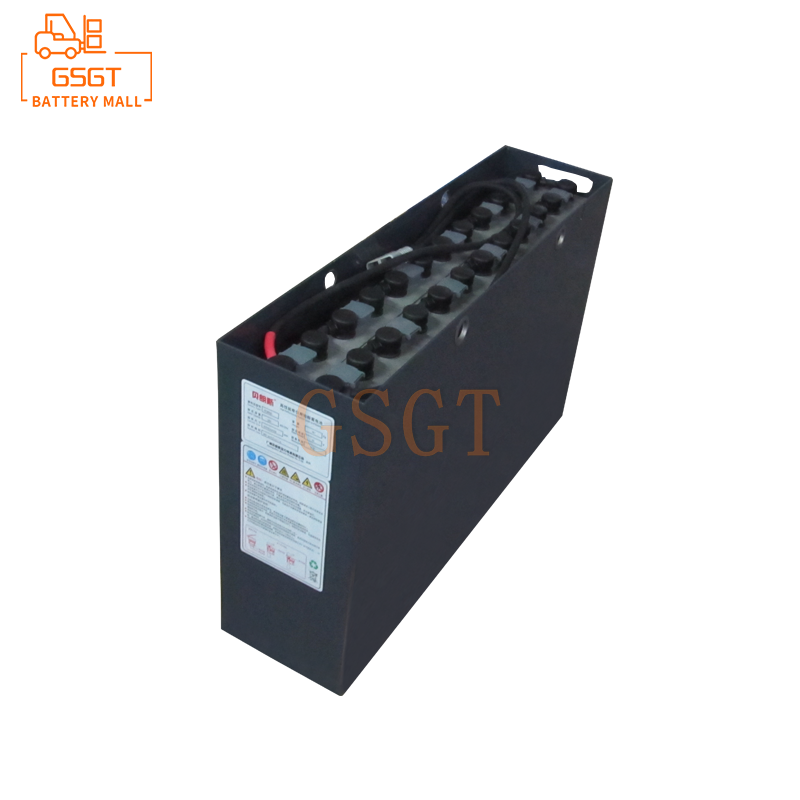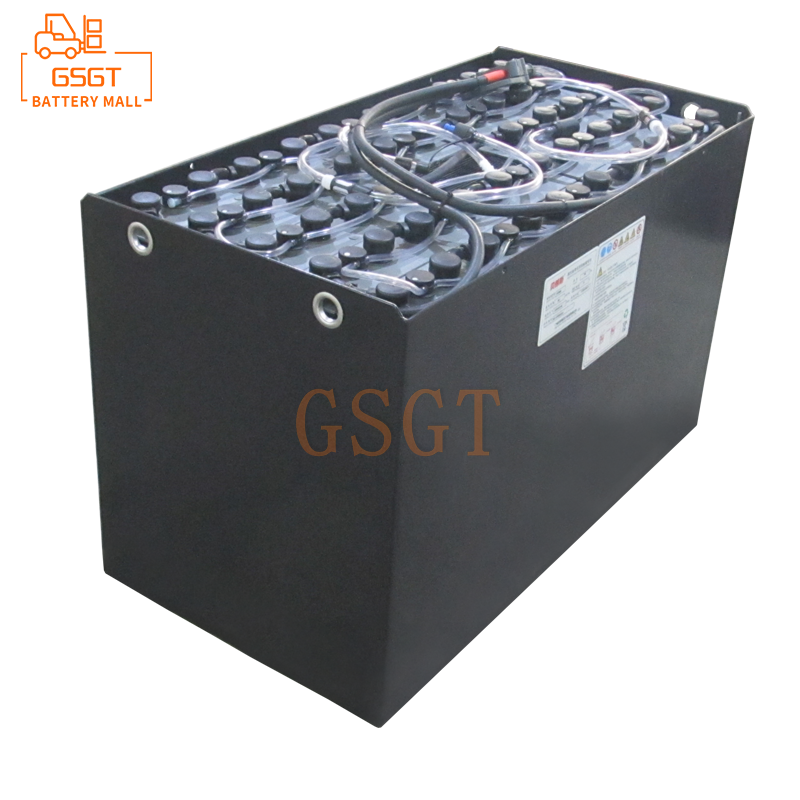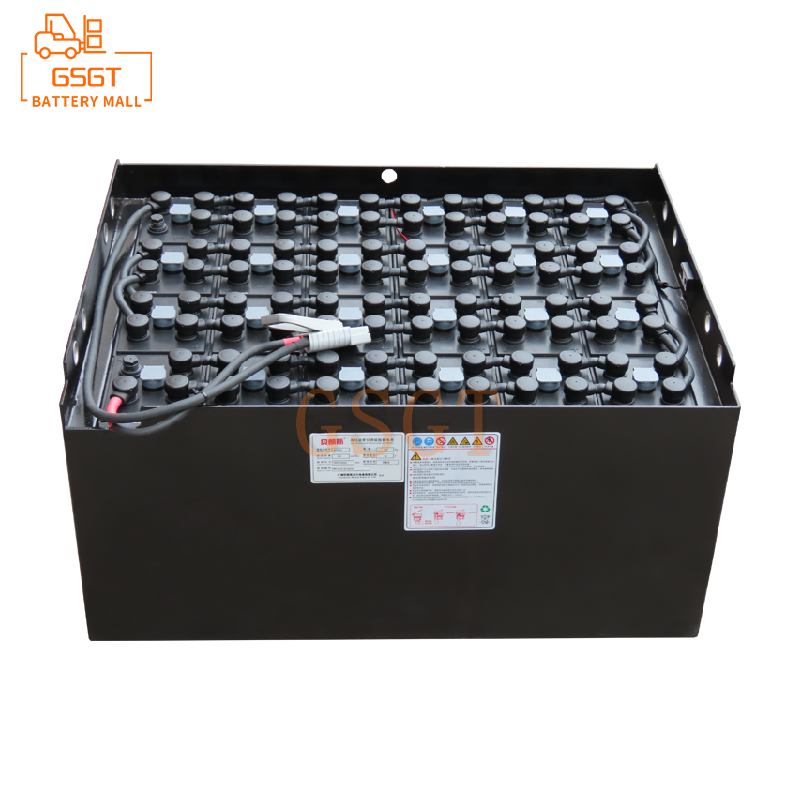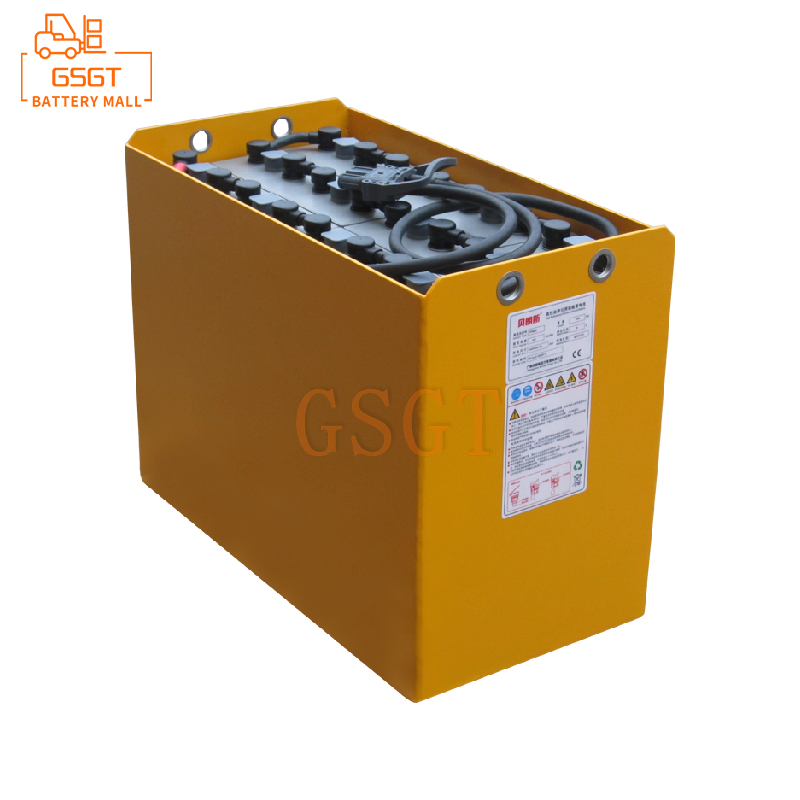Time:2025-07-17 14:55:25
Browse:613
In logistics warehouses, factory workshops and other places, forklifts are indispensable handling equipment. As for lead-acid batteries, their performance and lifespan directly affect the working efficiency and operating costs of forklifts. If not used and maintained correctly, it will not only lead to frequent battery damage and an increase in replacement costs, but also may cause safety hazards such as leakage, bulging and even explosion. Therefore, it is of vital importance for enterprises and operators to master the correct usage rules of lead-acid batteries for forklifts.
The core points of the charging process
Charging is a crucial step that affects the lifespan of lead-acid batteries. Improper operation can easily lead to problems such as sulfation and bulging of the battery plates. First of all, it is necessary to ensure the safety of the charging environment. The charging area must be well-ventilated and kept away from fire sources, heat sources and flammable and explosive items, as hydrogen is released during battery charging and may explode when exposed to open flames. At the same time, when charging, direct sunlight and rain immersion should be avoided. The ambient temperature should be controlled at around 25℃. If the temperature is too high, it will accelerate the chemical reactions inside the battery and shorten its lifespan. If the temperature is too low, it will cause insufficient charging.
Secondly, the principle of "shallow discharge and frequent charging" should be strictly followed. When the battery power is consumed to 20%-30%, it should be charged in time to avoid over-discharge. Excessive discharge can cause the formation of an irrecoverable sulfide layer on the surface of the plates, leading to a decrease in battery capacity. Before charging, check the appearance of the battery. If you find that the casing is cracked, leaking or the terminal posts are damaged, stop using it immediately and replace the battery.
In addition, only the original or matching charger must be used. Chargers of different models and specifications must not be mixed. When charging, first connect the charger to the battery, and then turn on the power. After charging is complete, first disconnect the power supply and then unplug the battery plug. The charging time is generally 8 to 10 hours. Once fully charged, the power should be cut off in time to avoid overcharging. Overcharging can cause the battery to lose water and the plates to soften, seriously affecting its performance.
Precautions during the discharge process
During the operation of a forklift, the state of battery discharge directly affects its service life. Operators should avoid sudden acceleration, sudden braking and other operations. Such behaviors can cause the battery to discharge a large current instantaneously, accelerating the wear of the plates. At the same time, operations should be reasonably arranged based on the load conditions of the forklift to avoid overloading. Overloading will keep the battery in a high-load discharge state for a long time, shortening its cycle service life.
When the forklift's instrument panel shows that the battery is low, operation should be stopped as soon as possible and the vehicle returned to the charging area. Do not force it to continue using. Some operators, in order to complete their work tasks, still insist on working when the battery power is extremely low. This practice can lead to deep discharge of the battery and cause irreversible damage to the plates. In addition, in low-temperature environments, the battery capacity will decrease. At this time, the single operation time should be appropriately shortened and the power should be replenished in a timely manner.
Key details of daily maintenance
Daily maintenance is an important guarantee for extending battery life. Operators should develop the habit of regular inspection. First of all, the battery level should be checked weekly. For maintainable batteries, if the level is 10-15mm lower than the upper edge of the plates, distilled water should be replenished in time. It is strictly forbidden to add tap water, mineral water or electrolyte, as the minerals in tap water can contaminate the battery interior and affect the chemical reaction.
Secondly, it is necessary to keep the battery surface clean and dry. If electrolyte leakage is found on the surface, it should be wiped clean immediately with a dry cloth dipped in soda water to prevent corrosion of the terminal posts. At the same time, check the tightness of the terminal posts and connecting wires. If any looseness or oxidation is found, they should be sanded with fine sandpaper and then re-tightened to ensure good contact and avoid a decrease in charging and discharging efficiency due to poor contact.
In addition, it is necessary to regularly check whether the battery casing is deformed or cracked. If any abnormality is found, it should be replaced in time to prevent the leakage of electrolyte and cause safety accidents. Batteries that are not used for a long time should be fully charged before storage. They should be recharged once a month to keep the battery level between 50% and 70%. They should be stored in a well-ventilated, dry and temperature-appropriate environment and kept away from metal objects.
Frequently Asked Questions
Question: How should an abnormal smell be emitted when the lead-acid battery of a forklift is charging?
Answer: If you smell a pungent sour or strange odor during charging, it might be due to overcharging, leakage or internal short circuit of the battery. At this point, the power supply should be immediately disconnected, charging stopped, and the battery moved away from the charging area. After the smell dissipates, check if there is any leakage or bulging on the battery's appearance. If leakage is found, the electrolyte should be cleaned up and the damaged battery replaced. If the battery looks normal, it might be a charger malfunction. You should contact a professional for inspection or replacement of the charger. Do not continue to charge the faulty device.
Question: After using the battery for a period of time, its capacity drops significantly. What causes this?
Answer: A decline in battery capacity may be caused by various reasons, such as sulfation of the plates, abnormal concentration of the electrolyte, and softening of the plates. Plate sulfation is mostly caused by long-term insufficient charging or failure to charge in time after discharge. Abnormal electrolyte concentration may be caused by improper liquid replenishment or battery leakage. Plate softening is related to long-term overcharging and overdischarging. When this situation occurs, you can first try balanced charging (i.e., charging with a small current for a long time). If the capacity still has not been restored, contact professional maintenance personnel for inspection. If necessary, replace the battery.
Summary
The correct use and maintenance of lead-acid batteries in forklifts can not only extend their service life, reduce the equipment replacement costs of enterprises, but also ensure operation safety and improve the working efficiency of forklifts. Operators should strictly abide by all the rules for charging, discharging and daily maintenance, pay attention to every detail, and promptly identify and solve problems. Only in this way can lead-acid batteries always maintain good performance, providing reliable power support for the stable operation of forklifts and helping enterprises achieve efficient and safe production and operation.

$1060

$3050

$5710

$1690

MESSAGE
Professional And Efficient
Security
Affordable Price
Professional Services